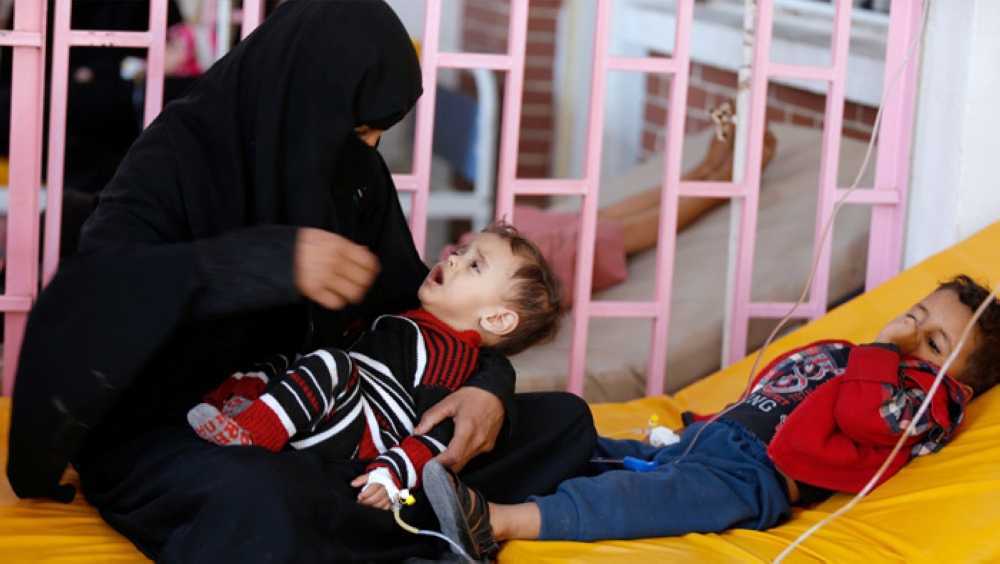
MUSCAT/AMMAN/CAIRO: Yemen is experiencing a spike in suspected cholera cases just two years after being hit by the world's largest outbreak of the bacterial disease, senior officials from UNICEF and WHO confirmed.
A joint statement issued by Geert Cappelaere, UNICEF Regional Director in the Middle East and North Africa and Dr. Ahmed Al Mandhari, WHO Regional Director for the Eastern Mediterranean, said, "In Yemen, since the beginning of the year till 17th March, nearly 109,000 cases of severe Acute Watery Diarrhea and suspected cholera were reported with 190 total associated deaths since January.
“Nearly one third of the reported cases are children under the age of five years old. This comes two years since Yemen witnessed the world's largest outbreak when more than 1 million cases were reported."
The two fear that cholera cases will continue to rise due to the early arrival of the rainy season, with lifesaving water systems and networks in the country in a state of collapse.
"The situation is exacerbated by the poor status of sewage disposal systems, the use of contaminated water for agriculture, unreliable electricity to store food and families’ displacement as they flee escalating violence especially in Hudaydah and Tai’z," they said.
Teams from UNICEF and WHO are working with local partners to respond and stop the spread and transmission of the diseases. The organisations were focusing on 147 priority districts, with additional health, water, hygiene and sanitation supplies being mobilised. Rapid response teams have also been deployed.
"A total of 413 Diarrhea Treatment Centres and Oral Rehydration Centres are operational in all 147 priority districts. Partners are repairing water and sanitation systems. In the past weeks, we scaled up chlorination activities to disinfect water in 95 priority districts and provided fuel and spare parts to keep going water supply and sanitation networks," the statement continued.
Authorities fear that the surge in cholera cases could lead to a return of an epidemic faced in 2017.
“UNICEF and WHO are calling to lift all restrictions on our humanitarian operations to respond to the spread of the disease and other areas. Our humanitarian teams must have full access to reach every child, every woman, every man in need of medical and other humanitarian assistance," said Cappelaere and Dr. Al Mandhari.
“Above all, we jointly reiterate the calls for the fighting to end. It is time for the four-year long war to come to an end. If not, Yemen will continue to be trapped in a web of diseases, malice and sink deeper in endless humanitarian disasters. With the most vulnerable paying the highest price."